Celebrating PGG Graduates
Please join us in our celebration as we highlight our PGG graduates.

Kryshawna Beard
Mentor: David Meaney, PhD
Thesis Title: Evaluating brain derived extracellular vesicles as diagnostic biomarkers of traumatic brain injury
Research and Lab Description: The Meaney lab leverages diverse injury modalities to investigate the trauma-induced changes that occur at various spatial scales, ranging from the individual cell to the neuronal circuit to the whole brain, to enable the development of personalized diagnostic and therapeutic strategies for brain injury patients. My graduate research has focused on utilizing brain-derived nanoparticles known as extracellular vesicles to diagnose traumatic brain injury and to accurately categorize individuals suffering this heterogeneous condition.
Post PhD Plans: I am currently an academic editor in clinical medicine for Research Square Company, and my role is to provide language editing services for international scientists aiming to publish their work in English journals.

Keith Campagno
Mentor: Claire Mitchell, PhD
Thesis Title: P2X7 Receptor Stimulation and Elevated Intraocular Pressure Rapidly Alter Microglia Morphology, State Markers, and Cytokine Release
Research and Lab Description: The Mitchell Lab focuses on the role of ATP signaling in both neuronal death in glaucoma, and in elevated pH and lysosomal signaling. I studied retinal microglial inflammation resulting from ATP/P2X7 receptor signaling from elevated pressure in a model of glaucoma.
Post PhD Plans: Intern, Project Development Regulatory, Genentech
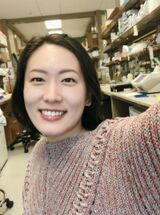
Suhee Chang
Mentor: Marisa Bartolomei, PhD
Thesis Title: The Developmental Role of H19 and IGF2 in Mouse and Human
Post PhD Plans: I am working as a postdoctoral fellow at JHU school of medicine, Jeff Coller's lab studying tRNA suppressors on premature termination codons.
Mentor Comment: It was an absolute pleasure having Suhee in the lab. She worked extremely hard on two technically and intellectually challenging projects and brought them both to interesting conclusions. We will miss her work ethic, scientific curiosity, sense of humor and her sweet tooth.
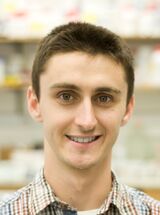
Ryan Cupo
Mentor: James Shorter, PhD
Saul Winegrad Award for Outstanding Dissertation
Thesis Title: Discovery of a Human Mitochondrial Protein Disaggregase, SKD3
Research and Lab Description: The Shorter lab is a collegial and stimulating environment that focuses on pathways of protein folding and misfolding in disease. I discovered that the protein Skd3 (human CLPB) governs a novel mitochondrial quality control pathway in mitochondria.
Post PhD Plans: After defending my PhD I started a postdoctoral position in the lab of Dr. Richard Youle at the National Institute of Neurological Disease and Stroke in the National Institutes of Health (NIH).
Mentor Comment: Ryan Cupo is a bright, industrious, and tenacious scientist. During his Ph.D., Ryan executed an elegant series of studies to uncover a potent protein-disaggregase modality, Skd3, in the intermembrane space of human mitochondria, which is critical for human health. Ryan has done great things in his Ph.D.
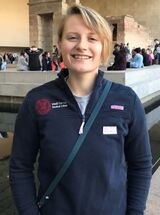
Emily Fabyanic
Mentor: Hao Wu, PhD
Thesis Title: Development of Single-Cell Transcriptomic and Epigenomic Sequencing Technologies to Assess Cell-Type-Specific Gene Regulatory Programs in Mammalian Brains
Research and Lab Description: My research in the Wu lab consisted of developing single-cell epigenomic and transcriptomic sequencing technologies.
Post PhD Plans: My current position at Spark is Next Generation Sequencing Scientist.

Daniel Jacome
Mentor: Mark Sellymer, MD, PhD
Thesis Title: Imaging and Manipulating Cells and Their Interactions with Trimethoprim-Based Tools
Post PhD Plans: Senior Consultant at Trinity Life Sciences
Mentor Comment: Daniel is a great critical thinker and was my first graduate student. He developed new technologies for imaging and controlling cellular interactions and played a huge role in the growth and success of our lab! In addition to his scientific accomplishments (multiple first author papers), he had a large role in the Penn Biotech Group (PBG) and is a now life-science consultant for Trinity Biosciences.
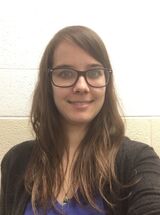
Claire Meurice
Mentor: Kelly Jordan-Sciutto, PhD
Thesis Title: Development and Validation of a Novel E2F1 Mouse Model to Evaluate the Cell-Type Specific Contribution of E2F1 to Age-Associated Neurodegenerationn
Research and Lab Description: I studied the role of E2F1 in age-associated neurodegeneration and contributed to the validation and characterization of a newly generated E2F1 knockout mouse in the Kelly Jordan-Sciutto lab. In addition to Dr. Jordan-Sciutto’s interest in the role of cell cycle proteins in neuronal health and function, we also studied various pathways involved in HIV-associated neurocognitive disorders, including integrated stress response, unfolded protein response, and the NLRP3 inflammasome. After receiving my PhD, I took a position at the Genomic Medicine Unit at Sanofi as a postdoctoral fellow in the neuromuscular group, where I am working toward developing new therapies for amyotrophic lateral sclerosis.
Post PhD Plans: Postdoctoral Fellow at Sanofi

Rebecca Myers
Mentor: Peter Klein, MD, PhD
Thesis Title: APC and GSK-3 Regulate Hippo Signaling Through Ajuba
Research and Lab Description: The Klein lab was a safe, supportive, and fun environment that allowed for learning and exploring new research areas and techniques. My dissertation work was on connecting Wnt and Hippo signaling through APC enhancement of GSK-3 activity to regulate Ajuba.
Post PhD Plans: Medical Writer for PRECISIONscientia
Mentor Comment: Rebecca Myers was a superb PhD student with a wonderful community spirit as well as outstanding fortitude in the face of many challenges. She came up with novel insights into how Wnt signaling works in colon cancer and other settings and worked diligently to prove her original hypothesis. Along the way, Rebecca discovered her affinity for science communication and is now a busy science writer. We will miss her unceasingly upbeat nature, her willingness to help others, and her excellent scientific insights.
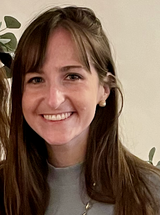
Theresa Patten
Mentor: Mariella De Biasi, PhD
Thesis Title: Development of a Mouse Model to Study E-Cigarettes and the Role of a Fruit Flavorant on Adolescent Nicotine Reward
Research and Lab Description: Dr. Mariella De Biasi’s lab studies the acute mechanisms and the long-term consequences of illicit drug use by measuring both behavioral and molecular outputs in a mouse model. I spent my thesis years studying the effect of added flavorants on adolescent nicotine reward, a topic that has garnered a lot of interest in the nicotine field recently due to rising rates of vaping among teens.
Post PhD Plans: I have switched gears (and animal models!) and have started a post-doc in Dr. Amita Sehgal’s lab at Pennsylvania School of Medicine, where I am beginning to investigate the underlying mechanisms of homeostatic sleep in Drosophila melanogaster.
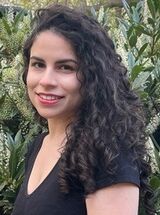
Natalia Amaris Quijano Carde
Mentor: Mariella De Biasi, PhD
Thesis Title: Preclinical Investigations of Genetic Correlates of Alcohol Use Disorder
Research and Lab Description: I completed my thesis work in the laboratory of Dr. Mariella De Biasi investigating genetic and molecular influencers of alcohol consumption and other associated behaviors using mice as model organisms.
Post PhD Plans: Janssen R&D as a post-doctoral fellow in Clinical Pharmacology and Pharmacometrics supporting the Oncology and Neuroscience therapeutic areas.

Andrea Rodriguez Rios (Guzman)
Mentor: Edward J. (Jim) Delikatny, PhD
Thesis Title: Development of a pH-Sensitive Probe for In Vivo Cerenkov Imaging of the Tumor Microenvironment
Research and Lab Description: I worked in the Delikatny lab, where there is a friendly and collaborative atmosphere that allowed all the members to learn from and give support to each other. For my thesis project, I worked on developing a pH-sensitive probe for Cerenkov imaging of tumor microenvironment pH in vivo.
Post PhD Plans: Medical Writer at PrecisionScientia

Ryan von Kleeck
Mentor: Richard Assoian, PhD
Thesis Title: Mechanisms of Early Arterial Stiffening and Reduced Smooth Muscle Contractility in the Premature Aging Disease Hutchinson-Gilford Progeria Syndrome
Research and Lab Description: The Assoian Lab aims to understand the onset of cardiovascular disease through the lens of one of the most prominent cholesterol-independent risk factors: arterial stiffness. Ryan's research focused on understanding the mechanisms of arterial stiffening and cardiovascular disease in the premature aging disease Hutchinson-Gilford Progeria Syndrome.
Post PhD Plans: Ryan has joined the in-vivo research group at Vesigen Therapeutics in Cambridge, MA focused on understanding how extracellular vesicles can be used to deliver therapeutic technologies for various diseases.

Khadija Wilson
Mentor: Ben Garcia, PhD, FRSC
Thesis Title: Elucidating the Pathological Mechanism of Histone H3.3 Mutations in Neurodevelopment
Research and Lab Description: The Garcia lab utilizes high-resolution mass spectrometry to explore cellular signaling, epigenetic mechanisms and chromatin regulation. I focused on understanding the pathological mechanism of germline mutation on histone H3 variant, Histone h3.3, in neurodevelopment.
Post PhD Plans: Technical Specialist at Sterne, Kessler, Goldstein & Fox, P.L.L.C.
Mentor Comment: Khadija was fearless to take on a project that was a completely brand new area of science for the lab (neuroscience). She worked like mad to not only get up to speed in the area, but to also get to the point where she was really independent and suggesting new experiments and avenues to explore.

